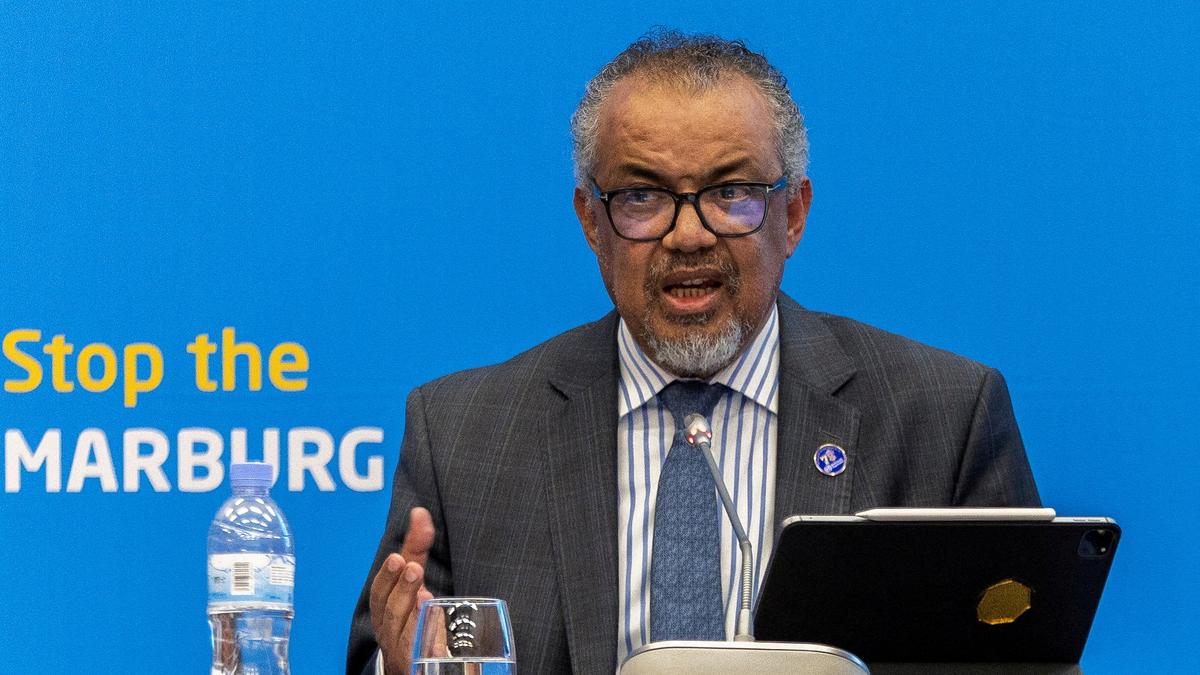Did you hear the shocking news? The United States is pulling out of the World Health Organization (WHO)! This unexpected move has sent shockwaves through the global health community, leaving many wondering about the future of international cooperation on health issues. But what does this actually mean? And why is everyone so concerned?
Understanding the WHO's Funding: A Deep Dive
The WHO, a cornerstone of global health, relies on a diverse range of funding sources to carry out its vital mission. Member states, including heavy hitters like Germany and the U.S. themselves, contribute assessed contributions, a percentage of their GDP. But a significant chunk comes from voluntary contributions – a mix of government money, philanthropic organizations (like the Bill & Melinda Gates Foundation), and private sector funding. Think of it as a complex financial ecosystem, where the balance can easily be disrupted by a significant player exiting the scene. The U.S. withdrawal, historically one of the largest contributors, definitely throws this delicate ecosystem off balance.
The Impact of US Withdrawal on WHO Funding
The US withdrawal from the WHO dealt a significant blow to the organization’s funding. The loss of substantial US funding represents a considerable challenge for the WHO, forcing it to readjust its budget and operational strategies to account for this deficit. However, other countries, such as Germany, remain steadfast in their commitment and contributions, ensuring continued financial support to the vital global health initiatives.
The Ripple Effect: Global Health in Jeopardy?
Beyond the financial ramifications, the U.S.'s departure creates uncertainty in the international health arena. The WHO played a critical role in global pandemic responses. This decision raises concerns about potential gaps in preparedness for future health crises. The U.S. and WHO, collaborating for over seven decades, have successfully eradicated smallpox and brought polio to the brink of eradication – now those triumphs are under a shadow. These achievements underscore the importance of continued cooperation, making the U.S. exit all the more worrying. Some critics also argue this decision could jeopardize ongoing programs crucial to countless communities, thus making international health far more fragile. It's more than just about funding; it's about lost collaborative expertise, global leadership, and potential fragmentation of critical health efforts.
US-WHO Collaboration: A History of Success
For over seven decades, the collaboration between the US and WHO resulted in significant advancements in global health. From eradication of smallpox to significant progress in combating polio, the partnership significantly contributed to improving global health outcomes. This historic collaboration brought forth improvements in areas like disease control, pandemic preparedness, health systems strengthening and global health policy development.
India Steps Up: A Rising Global Health Powerhouse
While the U.S. departure raises concerns, it also presents opportunities for other nations to step up. India, for instance, is strengthening its commitment to the WHO, committing hundreds of millions to support the WHO’s core programs. India’s increased involvement underscores its growing influence on the world stage, including its strong support to the WHO in the fight against major health crises, demonstrated by its commitment and support to core programs.
The India-WHO Collaboration: A Promising Future
India's support to the WHO extends beyond financial commitments. The nation actively contributes in health initiatives, like intensified pulse polio immunisation and mission indradhanush, reflecting a strengthened partnership. In the fight against the Covid-19 pandemic, collaborative efforts have played a pivotal role in containment strategies, vaccination campaigns and collaborative research.
Looking Ahead: Challenges and Opportunities
The future of global health hinges on adaptation and continued collaboration. While the U.S. withdrawal undoubtedly creates challenges, other nations are increasingly committed. A more fragmented, multipolar world might emerge – requiring agile, coordinated action and an evolution in how the international community addresses these challenges. However, the overall objective remains consistent—the pursuit of international health collaboration to overcome shared health crises, and maintaining a healthy planet.
Reimagining Global Health Collaboration: New Models
With the U.S. departure, international organizations will require greater agility to ensure a continued and responsive collective response. Collaborative partnerships will also benefit from exploring decentralized funding approaches, including new forms of public-private partnerships and creative engagement with non-traditional funding bodies and agencies to maintain the global commitment and cooperation towards ensuring international health and global health security.
Take Away Points
- The U.S.'s withdrawal from the WHO carries significant financial and political implications.
- Other nations, like India, are stepping up their contributions and collaboration.
- The future of global health security requires adaptation, innovative partnerships, and a more decentralized approach.
- The loss of the US support also emphasizes the need for greater transparency in the WHO’s operations and a more robust approach towards achieving global health equity.
- While financial stability will remain a primary concern for WHO, a redefined collaborative model will likely be required for addressing future pandemics and outbreaks globally.









